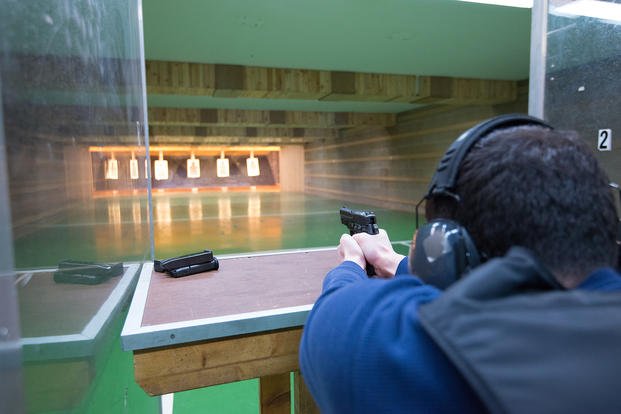He was a member of SEAL Team 6 and recognized as the man who shot Osama bin Laden, but after 16 years of service, the man known as "The Shooter" might be facing his biggest foe yet -- finding a life for himself outside the military.
Considering the expertise, sacrifices and sensitive nature of their service, the question of how highly trained special operators should be taken care of after leaving the military has been thrown into the spotlight, as the man who shot bin Laden, called "the Shooter" for anonymity, has spoken out about his transition to civilian life.
In a recent interview with Esquire, the Shooter goes into detail about the operation that ended with the killing of bin Laden and talks candidly about a perceived lack of support from the government, expressing concern for the well-being of himself and his family. In light of heightened security, the Shooter claims he was offered a basic witness protection package: a beer truck-driving position in Milwaukee and absolutely no contact with anyone he knows. According to the Esquire article, his wife, from whom the Shooter currently is separated, and children also have been cut off:
The loss of income and insurance and no pension aside, she no longer can walk onto the local base if she feels a threat to her family. They've surrendered their military IDs. If something were to happen, the Shooter has instructed her to take the kids to the base gate anyway and demand to see the commanding officer, or someone from the SEAL team. "He said someone will come get us."
"I left SEALs on [a] Friday," the Shooter told Esquire. "My health care for me and my family stopped at midnight Friday night. I asked if there was some transition from my TRICARE to Blue Cross Blue Shield. They said no. You're out of the service; your coverage is over. Thanks for your 16 years. Go f--- yourself."
Some of the Shooter's comrades share similar trepidations about rejoining the civilian world. In the Esquire article, a fellow SEAL Team 6 member who still is active expressed his concerns about his future: "I agree that civilian life is scary. And I've got a family to take care of ... If I get killed on this next deployment, I know my family will be taken care of. College will be paid for; they'll be fine. But if I come back alive and retire, I won't have a pot to piss in or a window to throw it out for the rest of my life. Sad to say, it's better if I get killed."
Currently the Shooter has managed only to secure a tenuous consulting job. He notes, "There is a Transition Assistance Program in the military, but it's largely remedial-level, rote advice of marginal value: Wear a tie to interviews, not your Corfam [black shiny service] shoes. Try not to sneeze in anyone's coffee."
The Shooter's experience is a reminder of the difficulties many special operations veterans face in transition, despite the efforts of officials and veteran-friendly employers to tout their strengths, based on their motivation and self-reliance. According to retired Marine Maj. Gen. Mike Myatt, "They're the greatest of their generation; they know how to get things done. If I were a Fortune 500 company, I'd try to get my hands on any one of them."
In a Guardian article about the Shooter's story, Zach Iscol, a former Marine captain who connects veterans to jobs, said, "As an operator in the Navy SEALs, [the Shooter] has incredibly marketable leadership skills that countless companies would be delighted to benefit from."
"I still have the same bills I had in the Navy," the Shooter said to Esquire. "I just want to be able to pay all those bills, take care of my kids and work from there. ... I'd like to take the things I learned and help other people in any way I can."
Want to Know More About the Military?
Be sure to get the latest news about the U.S. military, as well as critical info about how to join and all the benefits of service. Subscribe to Military.com and receive customized updates delivered straight to your inbox.











